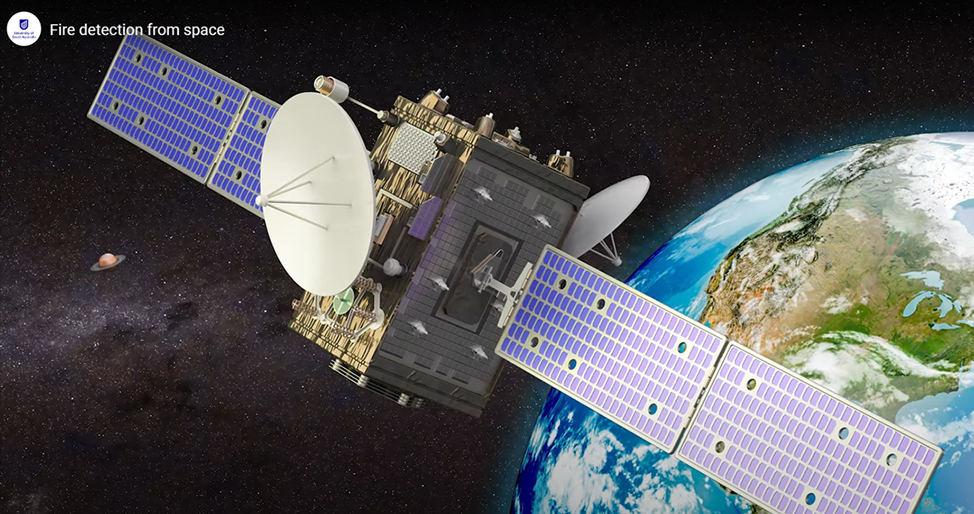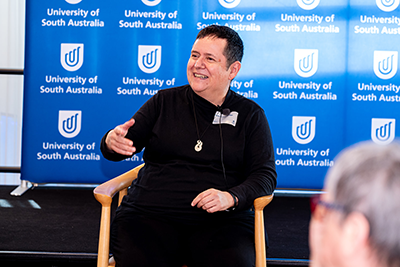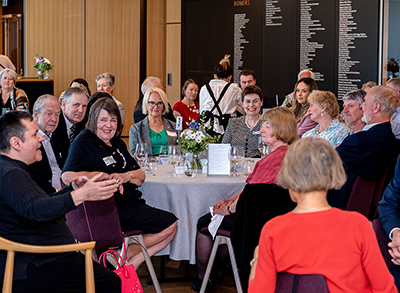17 June 2024
The University of South Australia hosted a luncheon earlier this year to thank donors for their ongoing contribution to furthering our aspirations. Among the speakers was Professor Jacqui Ramagge, Executive Dean of STEM, who provided an entertaining short history of the importance and impact of research. Here is a summary of her thoughts.

Professor Jacqui Ramagge
Executive Dean of STEM, University of South Australia

The critical importance of research and development cannot be overstated. Much of our progress, including advancements in health, food, and sanitation, is the culmination of centuries of research. Research is essential for innovation and also for addressing challenges that affect our daily lives. Do not underestimate the impact of simple things like a flushing toilet.
Universities play a pivotal role in research, collaborating closely with industry. However, industry funding typically prioritises projects with short-term returns, leaving long-term research gaps. Projects that have no foreseeable return within three to five years are typically untenable for industry. Also, it’s a very rare industry partner that will fund something that may lead to policies that might actually restrict their activities.
So, this is where universities and philanthropic individuals and organisations step in, supporting research that may not yield immediate profits yet lays the foundation for future breakthroughs.

on the value of research
This is where we come in. All that research that can be commercialised in a three- to five-year time span could not have happened without the research, or the curiosity, that drove that work in the five to 500 years before that.
Consider the example of HeartBug, a medical monitoring device developed with the involvement of health sciences, computer science, creative and various engineering disciplines – mechanical, electronic and possibly mechatronic. It's a testament to how different fields converge to develop, design, and create groundbreaking technologies.
If you look at the electronics involved, whenever you want to model electrical circuits, you need to use something called complex numbers, which Cardano first introduced in his Ars Magna of 1545. While everyone at the time thought he was insane – Who needs the square root of minus one? When would you ever use that? – now they’re absolutely vital.
Fundamental research, often dismissed initially, proves invaluable in unforeseen ways. Google's search engine, for instance, traces its origins to pioneering work in the 1920s. Similarly, concepts such as number theory, developed by Hardy (who introduced Ramanujan to the world) and once considered so abstract as to be essentially useless, are now crucial for cybersecurity.

to thank supporters of the University
This is research; if we knew what would happen, we wouldn’t call it research. And it works on the 80/20 principle – 80 per cent of your benefit will come from 20 per cent of what you are doing. You just don’t know ahead of time which 20 percent will produce the greatest benefit.
Looking ahead, the creation of Adelaide University presents exciting opportunities. It’s right to be sad-and appropriate to grieve-the end of UniSA. Grief is the price we pay for love; the more we love something, the more we will grieve its loss. But that grief can coexist with excitement about the future. We’re merging two great institutions with complementary strengths which in combination are extraordinary.
For example, UniSA has significant strength in agricultural machinery and soil science, while University of Adelaide has a centre for excellence in Plants for Space. Before you laugh, remember that Teflon was invented as a byproduct of the NASA space mission. The development of space rockets led directly to the invention of non-stick frying pans! Everything is possible and we have a massive, massive opportunity in the next few years to make an even bigger difference than we have before.

None of this is possible without philanthropic support and I’d like to invite everyone to join us on this incredible journey as we double our efforts to leave a strong research legacy in our final years as UniSA and prepare for an amazing future.
Discover recent highlights in UniSA Research:
Fighting fires from space in record time: how AI could prevent a repeat of Australia’s devastating wildfires
Nurses must be in the know about allergies
Breakthrough in complex pain management
Make a donation to a cause of your choice. For more options, please contact one of our fundraising team.




